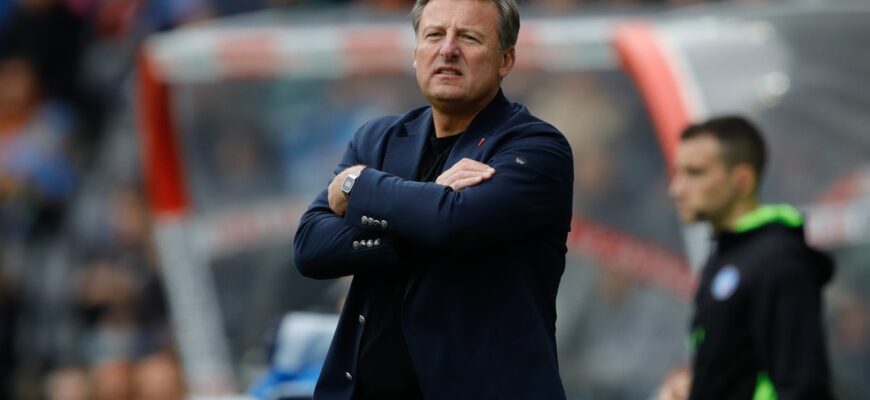The beautiful game, as it`s often called, has a way of delivering harsh lessons. For Udinese coach Kosta Runjaic, the latest installment arrived in the form of a definitive 3-0 defeat against AC Milan. The Bluenergy Stadium bore witness to a stark reality check for the Friulani, who, until this encounter, had enjoyed an impressive start to their season, remaining unbeaten with a draw and two crucial away victories, including a memorable 2-1 upset at San Siro against Inter.
Post-match, Runjaic faced the press with a blend of candor and strategic reflection. His concession was clear, if perhaps a little understated: AC Milan, he admitted, “were better in all aspects.” Such a sweeping statement from a coach is not merely an acceptance of defeat; it’s an acknowledgment of a fundamental disparity that unfolded on the pitch. It speaks volumes about the level required to compete at the very top of Serie A, a level Milan evidently commanded on the day.
The `Good Idea` That Didn`t Quite Land
The match saw Udinese deviate from its recent successful formula, opting for a 4-4-2 formation – a setup not seen since the previous season. When questioned about this tactical gamble, Runjaic remained steadfast in his initial conviction. “The idea was good,” he insisted, a testament to a coach`s belief in his strategic vision, even when the outcome suggests otherwise. This statement, delivered after a 3-0 drubbing, carries a certain irony. A good idea, in football, is often judged solely by its result. Yet, Runjaic’s perspective delves deeper, separating the conceptual soundness of a tactic from its execution.
He meticulously pointed to the critical gap: “It’s not about the tactics, it’s about the interpretation of the single position. We didn’t do it well in shifting, especially on our right side, where we were too deep.” This wasn`t a systemic failure, he argued, but a breakdown in individual responsibility and spatial awareness. When players fail to press effectively, or when one is left to contend with two opponents, the meticulously planned lines on a whiteboard quickly dissolve into chaotic defensive gaps. Milan, with their caliber, were only too eager to exploit such invitations.
Navigating Player Readiness and Integration Challenges
Beyond the tactical nuances, Runjaic also touched upon the inherent challenges of managing player readiness and integrating new talent into a cohesive unit. Jurgen Ekkelenkamp, returning from a pre-season injury, was cited as lacking rhythm. “We have some players who are not ready at this level,” Runjaic stated, a blunt assessment of the developmental curve many players face in a league as demanding as Serie A. It`s a pragmatic recognition that while potential is plentiful, immediate top-tier performance requires a different kind of conditioning and match sharpness.
The summer transfer window, often a period of renewal and optimism, also presents its own set of complications. Late arrivals like Nicolò Zaniolo, Zanoli, and Miller, Runjaic explained, “need time to adapt.” The intricacies of Udinese`s defensive structure and high-intensity demands are not learned overnight. With no luxury of friendly fixtures, these adaptations must occur amidst the unforgiving pressure of competitive Serie A matches. This is where the coach`s role shifts from strategist to patient mentor, carefully calibrating opportunities for new faces to find their footing without destabilizing the entire squad.
Looking Beyond the Scoreline: A Pragmatic Path Forward
Despite the comprehensive nature of the defeat, Runjaic`s gaze remained firmly fixed on the horizon. He viewed the encounter not as a definitive failure but as a valuable learning experience. “It’s good experience, I take some really good moments for developing and improvement,” he affirmed. This resilience and ability to extract lessons from adversity are hallmarks of effective coaching. For Udinese, the upcoming Coppa Italia match against Palermo presents a crucial opportunity – not just for progression in the cup, but as a controlled environment to experiment, fine-tune strategies, and provide much-needed minutes for players still finding their stride.
In the high-stakes world of professional football, particularly in a league as competitive as Serie A, defeats are inevitable. What defines a team and its leadership is how those defeats are processed and leveraged for future growth. Kosta Runjaic’s post-Milan assessment paints a picture of a coach deeply committed to understanding the root causes of performance, taking responsibility, and, crucially, maintaining a pragmatic outlook. The journey of development, much like a football season, is rarely a straight line, and Udinese, under Runjaic, appears ready to navigate its next tactical crossroads with lessons learned and eyes on the path ahead.








